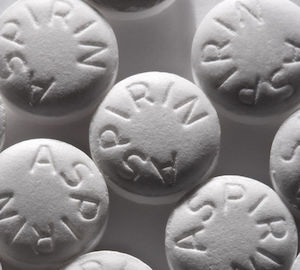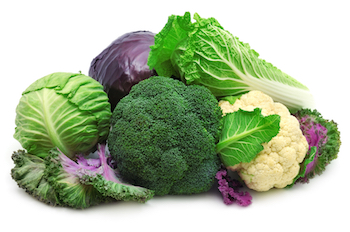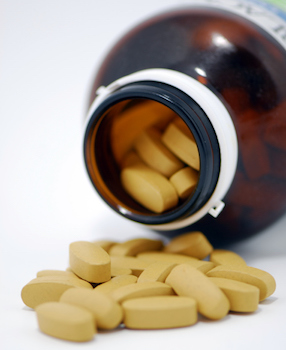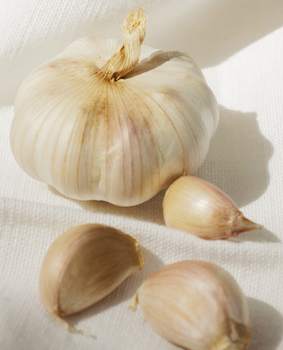Stay Informed
Popular Articles
- Hiatal Hernia: Hidden Cause of Chronic Illness
- Small Intestinal Bacterial Overgrowth (SIBO)
- Applied Lymphology: Unlocking the Secret to Pain Relief
- An Introduction to Constitutional Iridology
- The Low Down on Liver Detoxification
- An Energetic and Emotional Approach to Cancer
- Fat Facts
- Marrow in the Bones
- Blood Type and Nutrition
- Cardiac Herbs: Beyond Hawthorn
Quick Search
The School of Modern Herbal Medicine




Enhancing Liver Detoxification
- 7/14/2008
- Categorized in: Specific Health Problems
There are numerous supplements we can use to enhance Phase 1 detoxification systems. Milk Thistle Combination is one of these. B-Complex vitamins and Citrus Bioflavinoids with Vitamin C will also enhance Phase 1. Other good Phase 1 enhancers include Enviro-Detox, the Tiao He Cleanse and Free Amino Acids.
In Phase 2, the body attaches the toxin to another substance to process it for elimination. This process is called conjugation. There are six phases to the conjugation processes. When the body uses amino acids as conjugates, the process is called acylation. Attaching toxins to sugars is called glucuronidation. When glutathione is used as the conjugating substance, the process is called glutathione conjugation. Methylation attaches toxins to methionine, sulfation attaches them to sulfur and acetylation attaches them to the compound acetyl Co-A.
Here's a description of each of these processes and suggestions on how to enhance them.
Acylation
 In acylation, toxins are attached to amino acids, especially glycine. A low protein diet can inhibit acylation. When acylation is disturbed, it decreases bile production, which results in the poor assimilation of fats and fat soluble vitamins. Acylation detoxifies compounds like benzoate, aspirin and toluene (a widely used industrial solvent). People with hepatitis, chronic arthritis, low thyroid, excessive chemical exposure or toxemia in pregnancy often have problems with acylation. Acylation can be enhanced by alkalizing the pH and taking the amino acid glycine, which is found in Free Amino Acids and Super Algae.
In acylation, toxins are attached to amino acids, especially glycine. A low protein diet can inhibit acylation. When acylation is disturbed, it decreases bile production, which results in the poor assimilation of fats and fat soluble vitamins. Acylation detoxifies compounds like benzoate, aspirin and toluene (a widely used industrial solvent). People with hepatitis, chronic arthritis, low thyroid, excessive chemical exposure or toxemia in pregnancy often have problems with acylation. Acylation can be enhanced by alkalizing the pH and taking the amino acid glycine, which is found in Free Amino Acids and Super Algae.
Glucuronidation
Glucuronic acid is a metabolite of glucose that can be attached to toxins. This pathway is used as a back-up for sulfation or glycination. It is used to eliminate chemical and bacterial toxins, excess steroidal hormones (like estrogen), toxins from fungal infections and a variety of chemical toxins such as nitrosamines, aromatic amines, alcohols and phenols. Supplements that can assist glucuronidation include L-glutamine, Magnesium Complex, Super Omega-3 EPA and B-Complex vitamins. Foods containing limonene (citrus peel, dill weed and caraway) can also enhance glucuronidation. Aspirin and probenecid will inhibit glucuronidation.
Glutathione Conjugation
Attaching toxins to glutathione, one of the most important antioxidants in the body, helps to detoxify and eliminate poisons in the liver, lungs, intestines and kidneys. Glutathione helps the body get rid of a wide variety of chemical compounds including aromatic disulphides, paththalene and anthracene. Heavy metals inhibit the replenishment of glutathione.
 Nutrients that help to raise glutathione levels include vitamin C, alpha-lipoic acid, raw whey protein, and the amino acids glutamine and methionine found in Free Amino Acids. Cruciferous vegetables (cauliflower, broccoli, brussels sprouts, etc.) are very helpful in enhancing glutathione. The same limonene containing foods that enhance glucuronidation will also enhance glutathione conjugation. This pathway can be inhibited by deficiencies of selenium, vitamin B2 and zinc.
Nutrients that help to raise glutathione levels include vitamin C, alpha-lipoic acid, raw whey protein, and the amino acids glutamine and methionine found in Free Amino Acids. Cruciferous vegetables (cauliflower, broccoli, brussels sprouts, etc.) are very helpful in enhancing glutathione. The same limonene containing foods that enhance glucuronidation will also enhance glutathione conjugation. This pathway can be inhibited by deficiencies of selenium, vitamin B2 and zinc.
Indole-3-Carbinol, a compound found in cruciferous vegetables, will also enhance glutathione conjugation. It helps break down estrogens, including the xenoestrogens (environmental estrogens) that contribute to breast, prostate and cervical cancer.
N-Aceytl-Cysteine is a precursor to glutathione, which enhances cellular detoxification and helps protect the liver and other tissues from damage by free radicals. N-Aceytl-Cysteine can be particularly helpful for chemical or heavy metal poisoning.
Methylation
Methylation attaches toxins to the amino acid methionine. This process occurs in every cell of the body and helps the body get rid of excess hormones and neurotransmitters, including steroidal hormones like estrogen, adrenaline, dopamine, melatonin, histamine and serotonin. It also helps eliminate homecysteine, a compound associated with increased risk of heart disease. A variety of chemicals (amines, phenols, etc.) are also eliminated through methylation.
 Besides the amino acid methionine, methylation can be enhanced with B-vitamins (B6, B12, folic acid and choline), betaine (a compound from beets), which is also found in Protein Digestive Aid as betaine hydrochloric acid), magnesium and SAM-e. Magnesium is essential for the methylation enzyme. A folic acid or B12 deficiency will inhibit methylation.
Besides the amino acid methionine, methylation can be enhanced with B-vitamins (B6, B12, folic acid and choline), betaine (a compound from beets), which is also found in Protein Digestive Aid as betaine hydrochloric acid), magnesium and SAM-e. Magnesium is essential for the methylation enzyme. A folic acid or B12 deficiency will inhibit methylation.
SAM-e is a valuable supplement for liver detoxification as it also helps the body produce many methyl-based substances, including: carnitine. creatine phosphate (used in ATP energy production), epinephrine (adrenaline), posphatidyl choline (a nutrient that protects the nerves). Because of this SAM-e may help a variety of liver diseases, inflammatory disorders, depression and elevated levels of homocysteine. It may also reduce intestinal inflammation and protect the brain against free radical damage.
Sulfation
 Sulfation eliminates toxins by attaching them to sulphate. This is the principle pathway for eliminating excess neurotransmitters, several drugs (including acetaminophen, some food additives and toxins from intestinal bacteria. It also removes many forms of environmental toxins. Reduced sulfation may be involved in Parkinson's disease, Alzheimer's disease and other nervous system disorders and in environmental illness.
Sulfation eliminates toxins by attaching them to sulphate. This is the principle pathway for eliminating excess neurotransmitters, several drugs (including acetaminophen, some food additives and toxins from intestinal bacteria. It also removes many forms of environmental toxins. Reduced sulfation may be involved in Parkinson's disease, Alzheimer's disease and other nervous system disorders and in environmental illness.
Sulfation can be enhanced by amino acids like methionine and cysteine, taurine, glutathione (Free Amino Acids), MSM, garlic, onions and cruciferous vegetables. Red Yeast Rice aids sulfation. Vitamin B1 and B2, magnesium and molybdenum also aid sulfation, although excess molybdenum and excess B6 inhibit the sulfation process. Non-steroidal anti-inflammatory drugs inhibit sulfation. N-acetyl-cysteine (mentioned earlier) can also enhance sulfation.
Acetylation
Acetylation involves attaching acetyl co-A to toxins for elimination. People who are chemically sensitive are usually slow acetylators. Slow acetylation enhances the toxicity of drugs because it prolongs their life span in the body. Acetylation is used to eliminate excess histamine, serotonin, sulfa drugs, PABA and chemicals like sulphur amides and hydranzines. Nutrients that enhance acetylation include: pantothenic acid, Vitamin C and the amino acid thiamine. Deficiencies of B2, B5 or C inhibit acetylation.
By enhancing liver detoxification, we can protect the body against many of the toxic compounds found in modern society. Obviously, the best defense is avoiding chemicals and eating a healthy diet, but supplementation can be used to enhance the body's capacity to eliminate specific toxins.
